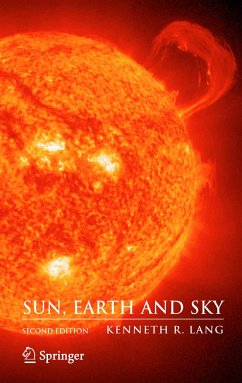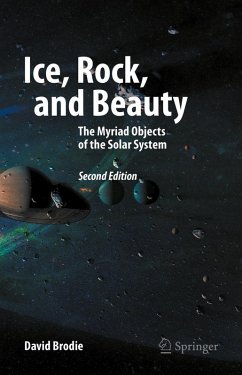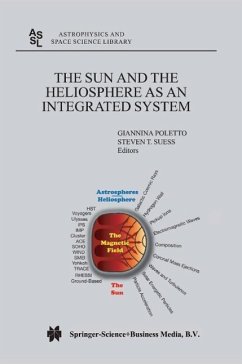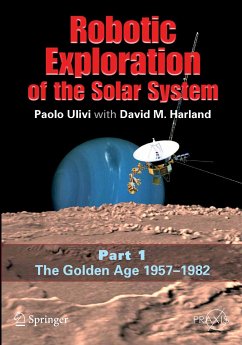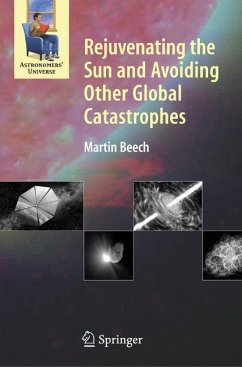
Rejuvenating the Sun and Avoiding Other Global Catastrophes (eBook, PDF)

PAYBACK Punkte
12 °P sammeln!
Our Sun is aging. Like us, it will someday die, and the light that warms and illuminates our planet will go out. All life on Earth will perish with it-unless we do something to stop it.Is that possible? Martin Beech thinks it is, but we must begin to plan and create the technologies that will save us NOW!Of course, we do not expect the Sun's demise to happen anytime soon. The Sun is only about halfway through its expected lifetime. We are talking about an event that will not take place for billions of years. But it may take that long to engineer (actually, asteroengineer) our way out of the cr...
Our Sun is aging. Like us, it will someday die, and the light that warms and illuminates our planet will go out. All life on Earth will perish with it-unless we do something to stop it.
Is that possible? Martin Beech thinks it is, but we must begin to plan and create the technologies that will save us NOW!
Of course, we do not expect the Sun's demise to happen anytime soon. The Sun is only about halfway through its expected lifetime. We are talking about an event that will not take place for billions of years. But it may take that long to engineer (actually, asteroengineer) our way out of the crisis. And in the meantime, we can use the newly developed knowledge and technologies to protect us from more immediate threats, such as asteroid and comet hits, global warming, and mass extinctions.
For us to keep the Sun shining, we must first change our attitudes. We must put profit and short-term thinking aside. And we must come together to share the risks and costs of the necessary endeavors. Martin Beech will lay out for you, in startling clear and compelling fashion, some basic star science, what the issues are, and how you can join in this massive undertaking to prevent global disaster and keep us in the Sun's life-giving light for the foreseeable future.
Is that possible? Martin Beech thinks it is, but we must begin to plan and create the technologies that will save us NOW!
Of course, we do not expect the Sun's demise to happen anytime soon. The Sun is only about halfway through its expected lifetime. We are talking about an event that will not take place for billions of years. But it may take that long to engineer (actually, asteroengineer) our way out of the crisis. And in the meantime, we can use the newly developed knowledge and technologies to protect us from more immediate threats, such as asteroid and comet hits, global warming, and mass extinctions.
For us to keep the Sun shining, we must first change our attitudes. We must put profit and short-term thinking aside. And we must come together to share the risks and costs of the necessary endeavors. Martin Beech will lay out for you, in startling clear and compelling fashion, some basic star science, what the issues are, and how you can join in this massive undertaking to prevent global disaster and keep us in the Sun's life-giving light for the foreseeable future.
Dieser Download kann aus rechtlichen Gründen nur mit Rechnungsadresse in A, B, BG, CY, CZ, D, DK, EW, E, FIN, F, GR, HR, H, IRL, I, LT, L, LR, M, NL, PL, P, R, S, SLO, SK ausgeliefert werden.




